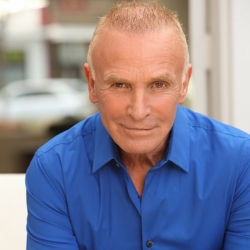Ever wonder why so many good intentions are forgotten by the second week in January? Here are five great tips for making sure your New Year’s resolutions actually wind up making a difference in your life.
Don’t start on Jan 1. Beginning any set of resolutions on New Year’s Day is a prescription for failure. Why? Because it’s arbitrary and artificial and few people really own it. Better: pick a day of your own choosing, further from the holidays and not symbolic like New Year’s Day is. That way it’s yours. You’re far more likely to make real lasting life changes if you start by owning them, and what better way to symbolize owning them than by choosing the start date rather than having it artificially imposed on you?
Don’t make the Arnold mistake. Every gym in America signs up more than three times their capacity at the beginning of the year. They do that because they know full well that over two-thirds of the new members will drop out within a month. Back when I was Dean of the Equinox Fitness Training Institute and working as a trainer in New York, we used to have a bet about how fast the newbies would drop out. Here was the clue: Guys would come in with the Arnold Schwarzennegger Encyclopedia of Bodybuilding, all revved up for a two-hour workout straight from the book, workouts that the Terminator used to do when he was training for the Mr. Olympia. They’d last three days. Don’t make the Arnold mistake and bite off more than you can chew. Set small, reasonable goals that you’re able to keep. Remember, your subconscious mind only knows success and failure; if you come in planning to do two hours and you “only” do an hour and a half, your brain logs that as a negative. Set yourself up for success. Start with short, light workouts. That way you leave the gym feeling successful, and that guarantees that you’ll be back for more. You can always make it harder later.
Rehearse and visualize. Studies have shown that mental rehearsal improves performance. Basketball players who go through their shots and strategy in their mind perform better on the field than those who don’t, and piano players who “practice” in their heads play as well as if they had spent 30 minutes at the keyboard. Learn from them. Rehearse the habits of your new lifestyle. When it comes to eating, for example, see yourself in a tempting situation with trigger foods and practice what you’re going to say, what you’re going to do, what you’re going to eat. Make it come alive. When you get to the real life situation, it’ll be that much easier to do what you’ve already “seen” yourself doing.
Act as if you’re already there. So many people tell me that if they could only lose 10 or 100 pounds, they’d be so happy and their lives would change. But they rarely realize that if they could snap their fingers and magically be the perfect weight, they’d still have to eat and live differently in order to maintain it, or they’d be back where they are right now in no time. If you were 10 or 100 pounds lighter right now, you’d have to eat like a person 10 (or 100) pounds lighter—and exercise like one too. So why not start right now? Act as if you’re already there- you’d have to live differently then, so you might as well get in the habit.
Make a list of the habits you’d like to change- start with one. If a goal is too overwhelming, we tend to turn away from it and tune out altogether. Maybe there are 20 or 30 different habits you’d like to develop and another couple of dozen you’d like to lose. Fine, that’s great. Make a list of all of them. Then pick one to work on. Remember, it takes 21 days to build (or lose) a habit. Honor that. Do one—two at the most—at a time, not all of them. When that one is strong, add another. If you go at that rate, you could add 17 new life-changing habits to your repertoire in a year.
Do these five tips and come next New Year’s you’ll have a whole new life. And a whole new—bigger—set of resolutions.
And you’ll know how to keep those as well. WF
 Jonny Bowden, “the Nutrition Myth Buster”™ is a board-certified nutritionist and the best-selling author of The Great Cholesterol Myth and 13 other books. Visit him at www.jonnybowden.com.
Jonny Bowden, “the Nutrition Myth Buster”™ is a board-certified nutritionist and the best-selling author of The Great Cholesterol Myth and 13 other books. Visit him at www.jonnybowden.com.
NOTE: The statements presented in this column should not be considered medical advice or a way to diagnose or treat any disease or illness. Dietary supplements do not treat, cure or prevent any disease. Always seek the advice of a medical professional before altering your daily dietary regimen. The opinions presented here are those of the writer. WholeFoods Magazine does not endorse any specific company, brand or product.
Posted on WholeFoods Magazine Online, Dec. 19, 2014










